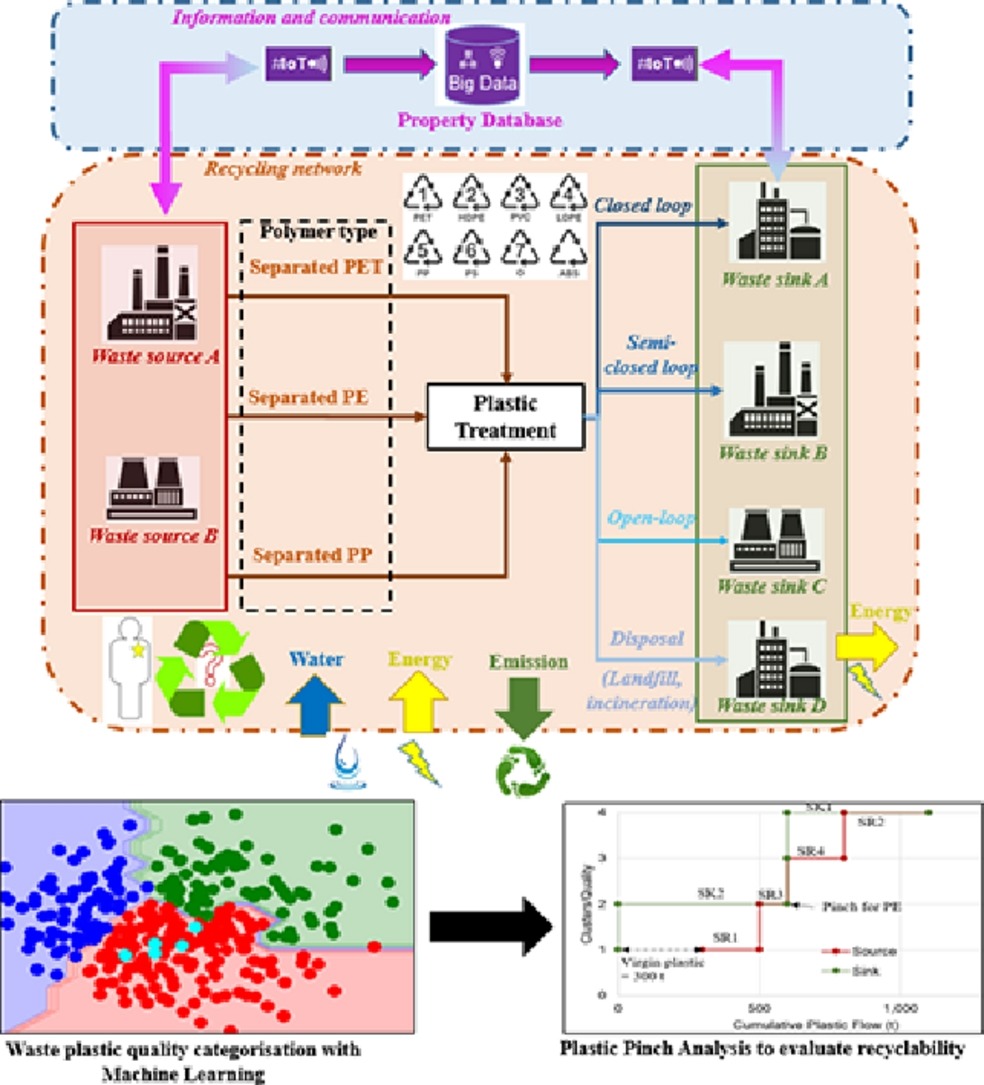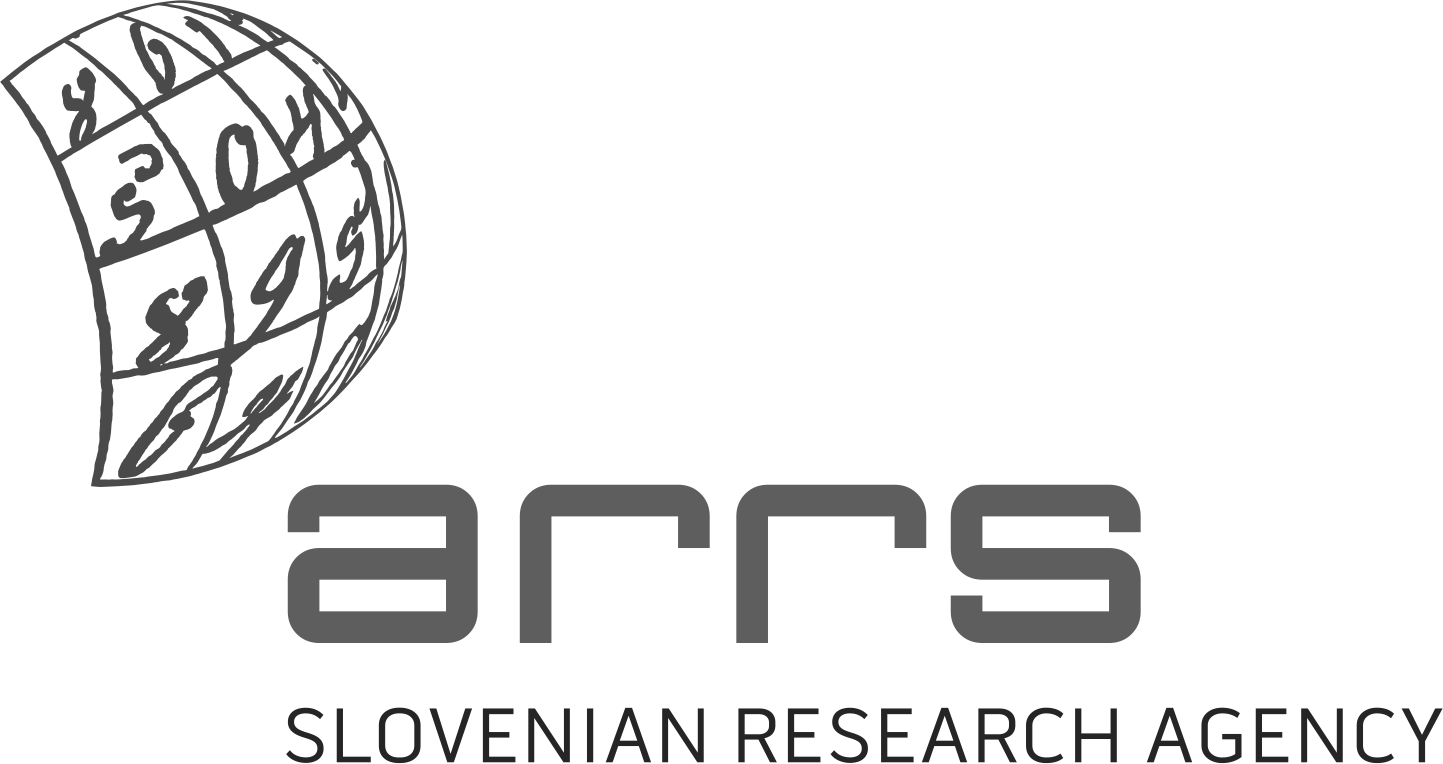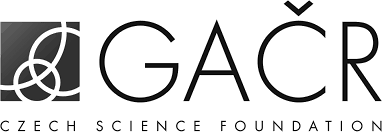The worldwide plastic waste accumulation has posed probably irreversible harm to the environment, and the main dilemma for this global issue is: How to define the waste quality grading system to maximise plastic
recyclability? This work reports a machine learning approach to evaluating the recyclability of plastic waste by categorising the quality trends of the contained polymers with auxiliary materials. The result reveals the hierarchical
resource quality grades predictors that restrict the mapping of the waste sources to the demands. The Pinch Analysis framework is then applied using the quality clusters to maximise plastic recyclability. The method
identifies a Pinch Point – the ideal waste quality level that limits the plastic recycling rate in the system. The novel concept is applied to a problem with different polymer types and properties. The results show the
maximum recycling rate for the case study to be 38 % for PET, 100 % for PE and 92 % for PP based on the optimal number of clusters identified. Trends of environmental impacts with different plastic recyclability and
footprints of recycled plastic are also compared.



